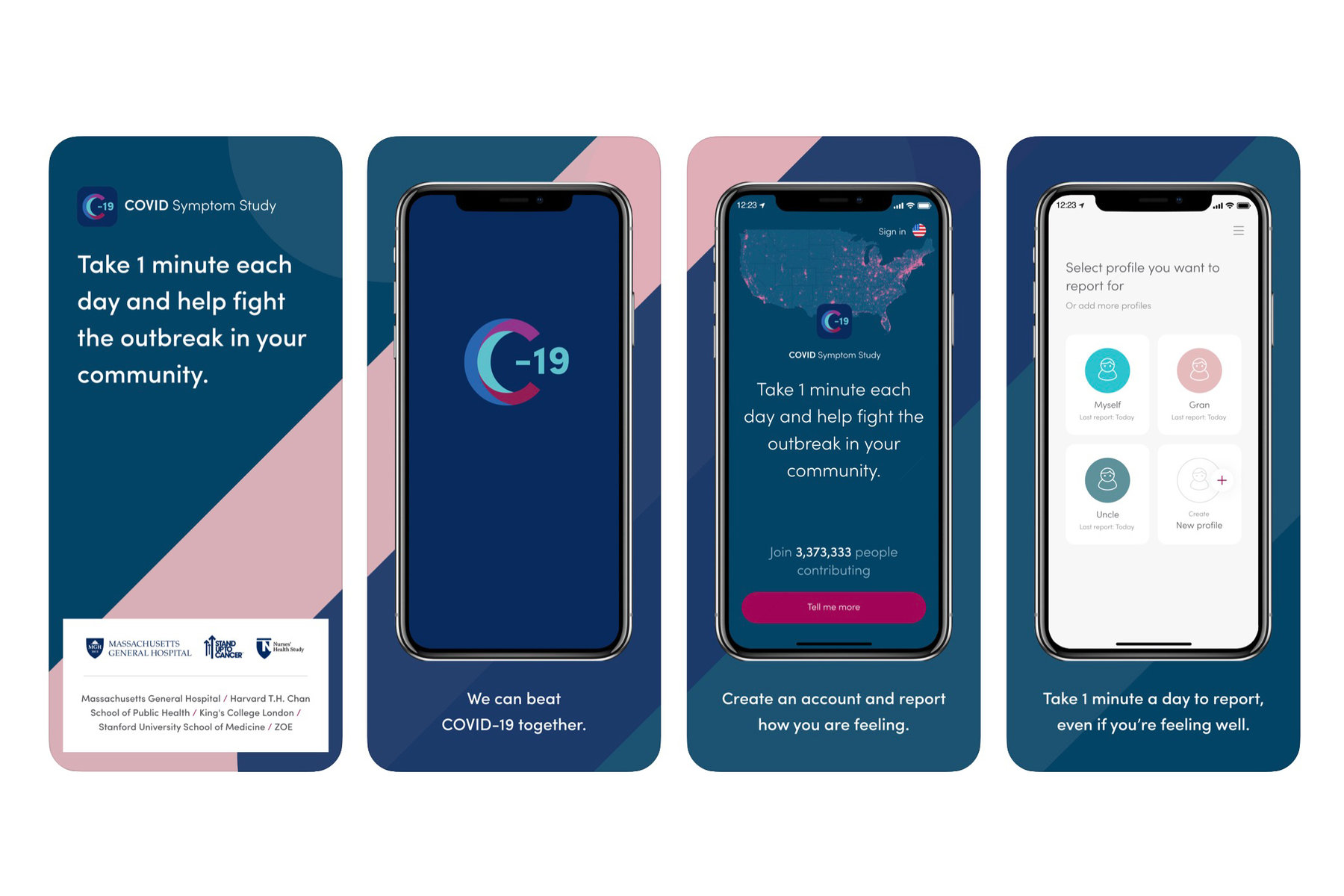In a new study, researchers from the UK and U.S. have found that crowdsourcing symptoms via an app may actually be useful in predicting covid-19 cases—and that the most reliable indicator was a loss of taste and smell, followed by fatigue and acute muscle pain.
Advertisement
The app, called COVID Symptom Study, was developed for iOS and Android by Zoe Global in partnership with King’s College London and Massachusetts General Hospital. Between March 24 and April 21, it tracked self-reported symptoms for approximately 2.6 million people in the U.S., UK, and Sweden. The app itself collected data from both asymptomatic and symptomatic individuals, in real-time, and on top of symptoms, tracks hospitalization, reverse-transcription PCR test outcomes, demographic data, and pre-existing conditions.

The findings are interesting, to say the least. While fever and cough have been the two most widely reported symptoms, researchers found they ranked fourth and fifth on the list of most reliable indicators. Based on the data collected from the app, researchers said they achieved the best results—nearly 80 percent accuracy—in predicting covid-19 when calculating a combination of loss of taste and smell, persistent cough, fatigue, and loss of appetite.
In an interview with the New York Times, the researchers noted that they hope global health institutions, like the World Health Organization, will be persuaded to rank loss of taste and smell higher than fever and cost when it comes to covid-19 screening. They also made a case for this type of crowdsourced surveillance app as a potential tool for public health officials in tracking the spread of the disease and deciding when to reopen communities.

Track Your Miles Fashionably With a New Fitbit
And yes, while the pros are definitely there for using symptom-tracking apps like the COVID Symptom Study, it’s also important to view these results with a healthy dose of skepticism, too. In this case, the data is all self-reported which in and of itself is a limitation. The results are also skewed in the sense it’s mostly based on people who are likely and willing to download an app and volunteer their data in this way. And as always, no app, no matter how accurate, will ever be a replacement for an actual covid-19 test from a doctor.
This app is far from the only tech that’s popped up in recent months to try and fill the gap left by inadequate testing. Kinsa, a smart thermometer, rolled out a nationwide fever map in March as a way to help potentially track the spread of the novel coronavirus. Carnegie Mellon University researchers also built an AI-powered app that aimed to detect covid-19 by listening to your cough. Several governments are working on their own contact-tracing apps, while Apple and Google are working on a joint contact-tracing app.
Advertisement
It’s ultimately hard to say how effective surveillance apps and smart gadgets will be in mitigating the global pandemic. The privacy question also looms over all these tech-related solutions. That said, if you’re going to download any covid-19 app or volunteer your data, a good rule of thumb is to do a little digging at who’s behind the app in question, identify whether your participation is opt-in, and whether a reputable research institution is involved.
